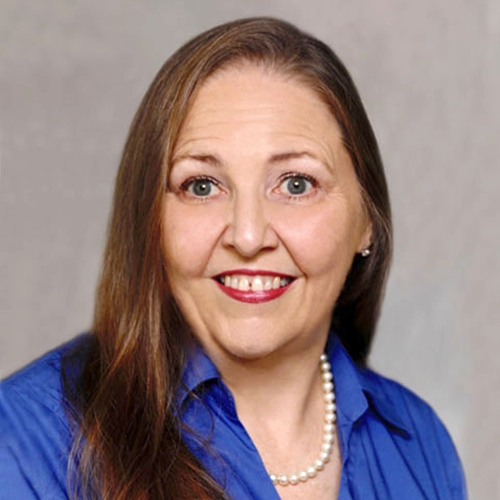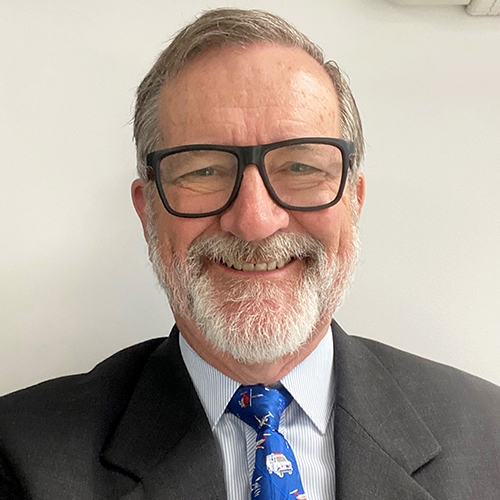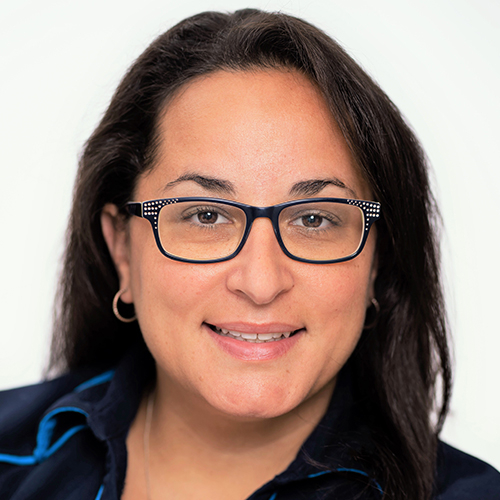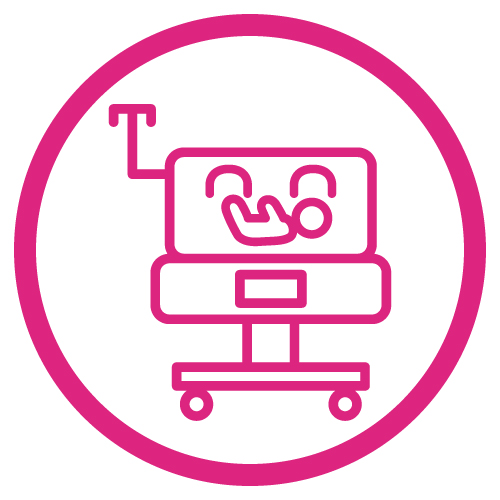 Neonatal Transport Online Course(s) & Continuing Education
Neonatal Transport Online Course(s) & Continuing Education
Access the latest clinical skills and research for Neonatal Transport for NEONATOLOGY professional training. These Neonatal Transport online courses provide practice-changing skills and valuable perspectives from leading global experts. This Neonatal Transport education has been accredited for a variety of CEUs / CERPs and can be accessed on-demand, at your own pace.


Dr. Caraciolo Fernandes is an academic neonatologist whose clinical experience and training spans three different countries/continents and over three decades. He received his medical degree from Grant Medical College in India, and did Fellowships at King Edward Memorial Hospital, Australia and Baylor College of Medicine, USA before joining the faculty at the Texas Children's Hospital and Baylor in 1998. He recently acquired a Master of Business Administration from the University of Tennessee in 2018.
A clinician-educator and practicing neonatologist, he is actively involved in teaching Baylor College of Medicine medical students, pediatric residents and neonatology fellows. At Texas Children's Hospital, he has served as the Medical Director for Neonatal Transport since 2008, and is involved in multi-disciplinary clinical research, and quality improvement initiatives. He also is a QI Coach at Baylor College of Medicine Institute for Continuing Professional Development in Quality Improvement and Patient Safety.
Nationally, he is a past member of Executive Committee of the Section of Transport Medicine of the American Academy of Pediatrics, and an editor of the inaugural edition of the Field Guide for Air and Ground Transport of Neonatal and Pediatric Patients that was introduced at the AAP National conference in Orlando, FL in November 2018. He is a senior editor of "Guidelines for the Acute Care of the Neonate," currently in its 28th annual revision, a handbook that has served as a resource for health-caregivers at Baylor-affiliated institutions for over two decades, and, currently via free online download, for practitioners in over 50 countries.
Premature and sick babies are often born in locations ill-equipped to care for them. They are then transported to higher levels of care for sophisticated diagnostic tests and specialized care. However, while such transport is necessary, it is not without risk. Since critically-ill infants can deteriorate clinically during transport, ideally only specialized teams should transport sick infants. Unfortunately, this is not pragmatically possible nor is the standard of care. With regionalization of care, more infants are transferred to tertiary-care centers for specialized care than ever before and not all centers have specialized transport teams to transport infants. Despite best efforts, not all transports will go well, and often processes and outcomes may leave much to be desired. Hence, it is vital for hospital administrators and clinicians to learn quality improvement (QI) methodology, monitor relevant metrics, and implement QI initiatives to order to improve outcomes. Fortunately, developing a QI mindset and applying it to neonatal transport can easily be done with practice. Learning how to prioritize QI initiatives, assemble QI teams, lead healthcare change, sustain improvements, and develop a culture that strives to improve are all desirable and can yield significant tangible benefits for clinicians and their patients.

Neonatal Stabilization and Transport: New Science, Old Reminders and Some Common Sense

Webra has over 40 years of experience in neonatal critical care with over 25 in neonatal transport. Currently she is the coordinator for the Maryland Regional Neonatal Transport Program, a private joint venture between University of Maryland Medical Center and Johns Hopkins Hospital. Her position includes administrative and clinical oversight to the transport program and outreach education to all referral hospitals. Webra has held leadership positions in National Association of Neonatal Nurses (NANN), the American Academy of Pediatrics (AAP) Section on Transport Medicine, Commission on Accreditation of Medical Transport Systems (CAMTS) and American Academy of Neonatal Nursing (ANN). She is author of various articles, contributing author to books and publications. She has been a Content Reviewer of the 2006 and 2013 S.T.A.B.L.E. Program Learner Manuals, S.T.A.B.L.E. Program Instructor and Lead Instructor Trainer. Dr. Price-Douglas is an experienced, knowledgeable and well-respected presenter at national/ international meetings and has been on various planning committees/university faculty involved in educational activities including didactic, interactive and simulation programs. She holds certification as a neonatal nurse practitioner and lactation consultant. Webra is on the RISE team (Resilience in Stressful Events) at Johns Hopkins. She is interested how stressful/critical incidents (maternal/neonatal death/ stabilization attempts) impact the nursing/medical staff. She has completed formal education on integrative medicine strategies to support families and health care providers and promote resiliency.
The goal of neonatal stabilization/transport is to provide therapies and services to reduce mortality and morbidity. This presentation will consist of the introduction of new science, review older material and some common sense information that is often forgotten. Neonatal mortality and morbidity data and new evidence guides our practice but the collection and dissemination of that information can be challenging. As respiratory management options expand, keeping transport providers skilled in airway management/intubation and new modalities can be difficult. Evidence regarding brain development, Hypoxic Ischemic Encephalopathy (HIE) identification and management and glucose metabolism and implications for long term development continues to evolve. The Golden Hour approach to management is so much more than just time and preterm infants. There is old and new information to offer guidance in the management of suspected sepsis in the neonate. Stabilization priorities and how to begin and continue will be discussed. Safety must be reflected in every stabilization in every setting.


Dr Nandiran Ratnavel has been a Consultant Neonatologist at The Royal London Hospital, Barts Health NHS Trust for 16 years. He is Director of The London Neonatal Transfer Service and Joint Clinical Lead for North East and Central London Neonatal Services. He serves as joint implementation lead for In Utero Transfer Services in London and has recently taken up a position as Neonatal Clinical Lead for the London Maternity and Neonatal Safety Improvement Programme. Finally he has a role as clinical reviewer for the Independent Maternity Services Oversight Panel for the Welsh Government.
Retrieval medicine is associated with certain hazards. These can affect the patient or staff. Avoidable adverse events often arise as a consequence of suboptimal communication, drug error, inadequate preparation or equipment failure. Applying the principles of risk management and clinical safety is essential. To understand issues associated with neonatal transport one needs to look at the infrastructure of transfer teams, arrangements for governance, risk identification, incident reporting, feedback and learning from experience. One also needs to look at audit processes, training, communication and ways of team working. Adherence to current recommendations for equipment and vehicle design are also vital. Benchmarking between services and sharing best practice with a view to optimising safety and reducing risk is recommended.


Dr. Andrew Berry, AM MB BS FRACP, is a Neonatal and Paediatric Retrieval Specialist. He has vast experience in neonatal and paediatric critical care transport since 1977. This includes being the head of Neonatal Intensive Care, and Director of Newborn Transport Service, both at Royal Alexandra Hospital for Children in Sydney, Australia.He is currently State Director at NETS, the Newborn and Paediatric Emergency Transport Service of New South Wales, Australia.
Dr. Berry is a fixed wing and rotary wing pilot. In 1989 he co-founded Child Flight Inc., and dedicated helicopter service for children.
His expertise is regularly sought on how to develop and operate emergency transport services and associated advisory programs for perinatal, neonatal and paediatric acute care in Australia, Brunei, New Zealand, Malaysia, Hong Kong, Canada, England, Scotland, Singapore, and the USA.
Air transport is commonly required for acute patient transport; including of sick newborns. Regionalization of tertiary neonatal care often means longer transport distances for patients between local referring hospitals and places of definitive care. The physiology of the newborn and some unique features of disease processes in the newborn present some challenges in safe transport by air. Fixed wing and rotary wing transport modes expose the sick newborn to different stressors according to their own unique variable cabin environments and altitude. An understanding of how newborns react to air transport and how to modify the air transport environment can both contribute to safer, more effective transport of the newborn.


Bridget Liriano is a registered nurse with over 15 years of experience in pediatrics and holds a Master of Nursing degree from the University of Toronto in Ontario, Canada. As the Quality Leader and a Transport Clinician for the Acute Care Transport Service (ACTS) Team at Sick Kids, Bridget is committed to providing expert medical care in the stabilization and safe transport of acutely ill neonates and children. She is a strong advocate for quality and safety, which is demonstrated through her involvement in clinical research, team-based projects and quality improvement initiatives. She has formerly covered the role of Interprofessional Education Specialist, working in collaboration with the leadership team to support the educational needs of her ACTS colleagues. Bridget has a passion for clinical education and simulation-based training, with a focus on interprofessional collaboration, peer mentorship, clinical debrief and neonatal resuscitation.
This session will highlight important aspects of resuscitation and stabilization of the neonate with an evidence based approach to clinical practice. Through case based examples, the audience will explore how effective communication, interprofessional collaboration and reference to clinical care pathways can promote patient safety and quality of care for the most vulnerable neonatal patients. Learners will gain a better understanding of the triage process and the preparation of patients for acute care transport. The session will conclude with a review of the ‘lessons learned’ from transport case presentations and their outcomes.












